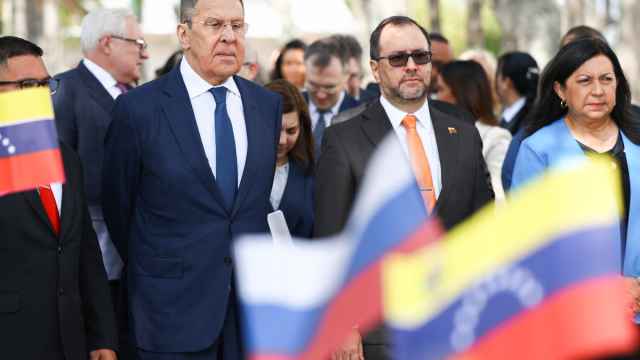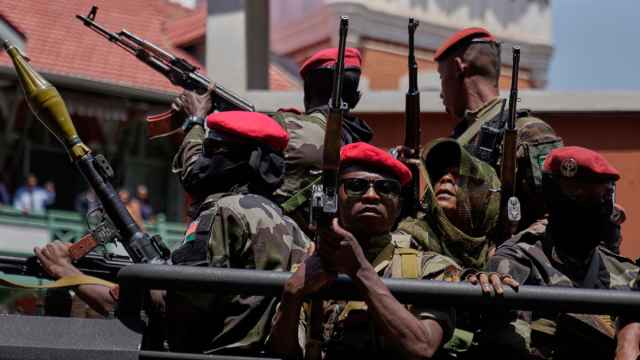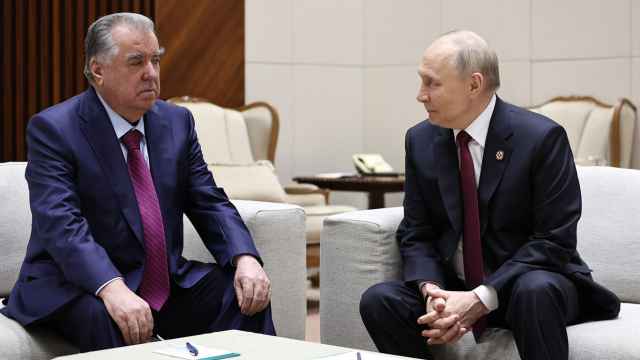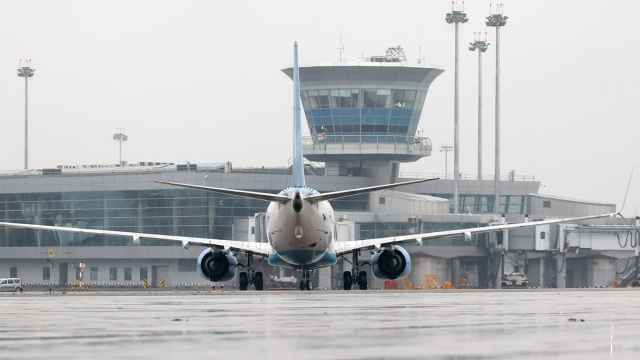The Central Bank left interest rates unchanged, refraining from monetary tightening for the first time since November as inflation slows and Europe's debt crisis threatens to sap a rebound in global growth.
The bank held its refinancing rate at 8.25 percent after two increases this year, the Moscow-based bank said Thursday on its web site. That's in line with the forecasts of 18 of 19 economists in a Bloomberg News survey. The bank left the overnight auction-based repurchase rate and the overnight deposit rate unchanged at 5.5 percent and 3.5 percent, respectively, and didn't alter reserve ratios.
"This decision was based on the assessment of inflation risks and risks to the sustainability of economic growth," the bank said in the statement, citing uncertainty over the development of the "external economic situation."
The Central Bank has been raising interest rates and reserve requirements every month since December to soak up excess cash and combat the fastest price growth among the so-called BRIC countries. Policymakers are predicting a slowdown in inflation in the second half of the year, while also seeking to protect economic growth as the global recovery appears to be weakening.
Consumer prices will rise no more than 5.2 percent in the first half and another 0.3 percent to 0.4 percent in the third quarter, Central Bank First Deputy Chairman Alexei Ulyukayev said June 17. The bank is "comfortable" with current interest rates and "very likely won't need to change them" in the coming months, he told Vedomosti in an interview published June 6.
The Central Bank is seeking to keep inflation from cutting into consumer incomes before State Duma elections in December and a presidential vote early next year.
Consumer prices were unchanged for two weeks this month, failing to grow for the first time since May last year. Prices rose 9.6 percent in May from a year earlier, matching a 19-month high. Central Bank Chairman Sergei Ignatyev is targeting inflation between 6 percent and 7 percent, the lowest level since the Soviet Union collapsed in 1991.
That goal has come under threat as Europe's debt crisis imperils a global recovery. The U.S. Federal Reserve lowered its growth forecast for the world's largest economy earlier this month. The slowdown threatens to erode demand for Russia's commodity exports.
"There's been alarming news from Europe, from the U.S., from Japan," Yelena Matrosova, a Moscow-based economist at BDO International, a financial adviser that lists the Central Bank among its clients, said Wednesday by e-mail. "That's where the primary risks to the Russian economy are coming from."
Money held on correspondent accounts and deposits at the Central Bank, a key indicator of liquidity, has averaged 798 billion rubles ($28.6 billion) this month, down from 1.4 trillion rubles in January, Bloomberg data show.
"Excess liquidity may still be an important factor this year because budget expenditures will grow," said Yaroslav Lissovolik, chief strategist at Deutsche Bank in Moscow. "It's also possible we'll have capital inflows after the significant outflow in the preceding months."
A Message from The Moscow Times:
Dear readers,
We are facing unprecedented challenges. Russia's Prosecutor General's Office has designated The Moscow Times as an "undesirable" organization, criminalizing our work and putting our staff at risk of prosecution. This follows our earlier unjust labeling as a "foreign agent."
These actions are direct attempts to silence independent journalism in Russia. The authorities claim our work "discredits the decisions of the Russian leadership." We see things differently: we strive to provide accurate, unbiased reporting on Russia.
We, the journalists of The Moscow Times, refuse to be silenced. But to continue our work, we need your help.
Your support, no matter how small, makes a world of difference. If you can, please support us monthly starting from just $2. It's quick to set up, and every contribution makes a significant impact.
By supporting The Moscow Times, you're defending open, independent journalism in the face of repression. Thank you for standing with us.
Remind me later.





